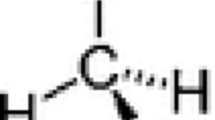Abstract
Our purpose is to formulate a complete logic of propositions that takes into account the fact that propositions are both senses provided with truth values and contents of conceptual thoughts. In our formalization, propositions are more complex entities than simple functions from possible worlds into truth values. They have a structure of constituents (a content) in addition to truth conditions. The formalization is adequate for the purposes of the logic of speech acts. It imposes a stronger criterion of propositional identity than strict equivalence. Two propositions P and Q are identical if and only if, for any illocutionary force F, it is not possible to perform with success a speech act of the form F(P) without also performing with success a speech act of the form F(Q). Unlike hyperintensional logic, our logic of propositions is compatible with the classical Boolean laws of propositional identity such as the symmetry and the associativity of conjunction and the reduction of double negation.
Similar content being viewed by others
References
Austin, J. L., 1956,How to do things with words, Oxford:Clarendon Press.
Cresswell, M. J., 1975, ‘Hyperintensional logic’,Studia Logica 34, 25–38.
Fine, K., 1986, ‘Analytic implication’,Notre Dame Journal of Formal Logic, Volume 27, 2.
Kaplan, D., 1970, ‘On the logic of demonstratives’,Journal of philosophical logic 8, 81–98.
Kripke, S., 1963, ‘Semantical considerations on modal logic’,Acta Philosophica Fennica, 16.
Lewis, C. I., 1918,A Survey of Symbolic Logic Berkeley and Los Angeles, University of California Press.
Montague, R., 1974,Formal Philosophy, Yale University Press.
Parry, W. T., 1933, ‘Ein Axiomsystem fur eine neue Art von Implikation (analytische Implikation)’,Ergebnisse eines Mathematisches Colloquimus, 4.
Searle, J., 1983,Intensionality, Cambridge University Press.
Searle, J. andD. Vanderveken, 1985,Foundations of illocutionary logic, Cambridge University Press.
Vanderveken, D., 1990–91,Meaning and speech acts, Cambridge University Press,vols I and II.
Vanderveken, D., 1991, ‘What Is a Proposition?’,Cahiers d'epistemologie, Universite du Quebec a Montreal, no 9103.
Vanderveken, D., 1994, ‘A new formulation of the logic of propositions’, forthcoming in M. Marion and R. Cohen,Logic and Philosophy of Science in Quebec, inthe Boston Studies in Philosophy of Science, Kluwer.
Wójcicki, R., 1984,Lectures on Propositional Calculi, Ossolineum.
Author information
Authors and Affiliations
Rights and permissions
About this article
Cite this article
Nowak, M., Vanderveken, D. A complete minimal logic of the propositional contents of thought. Stud Logica 54, 391–410 (1995). https://doi.org/10.1007/BF01053006
Received:
Revised:
Issue Date:
DOI: https://doi.org/10.1007/BF01053006




